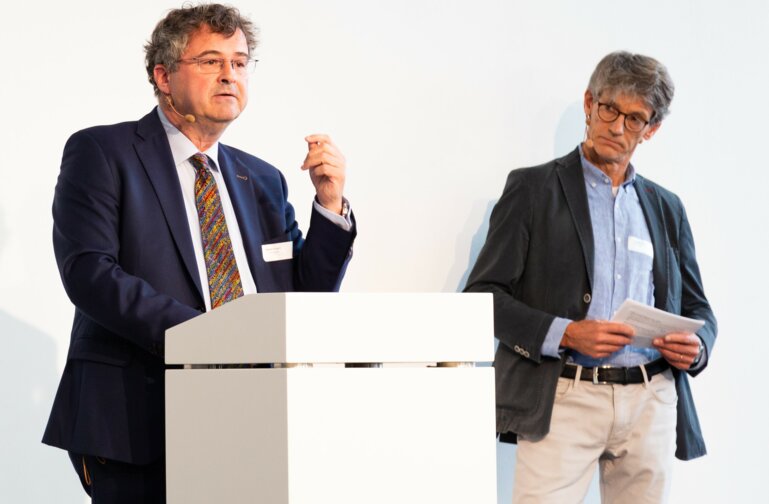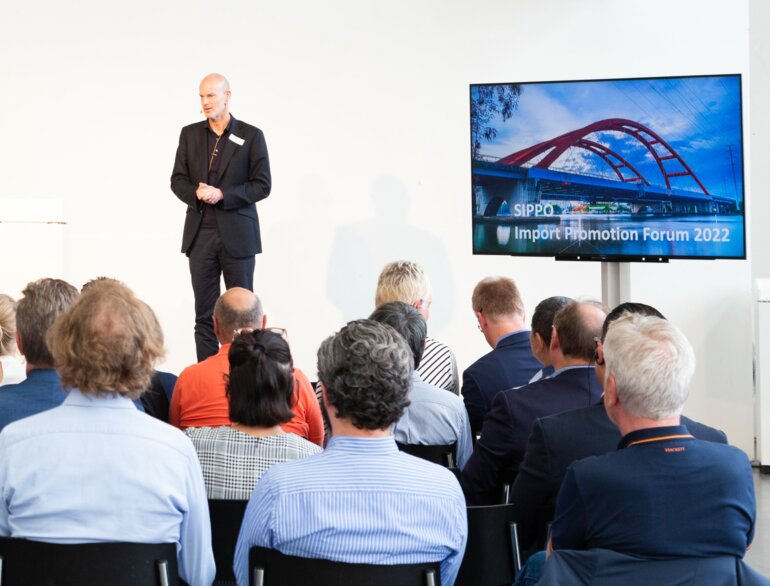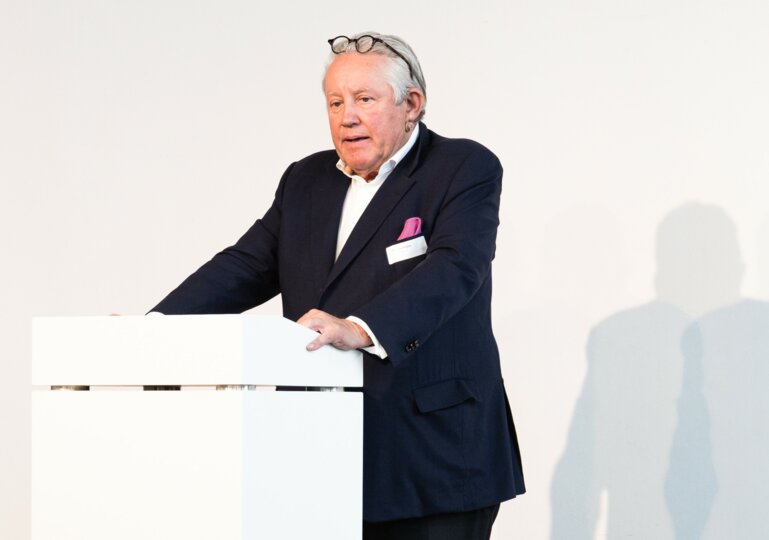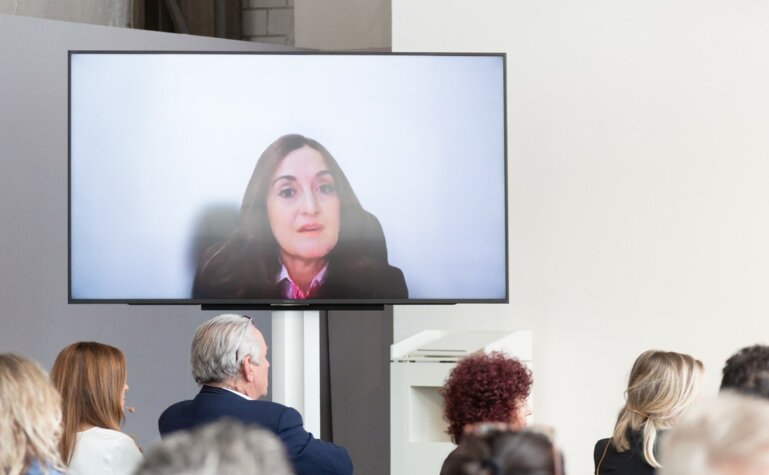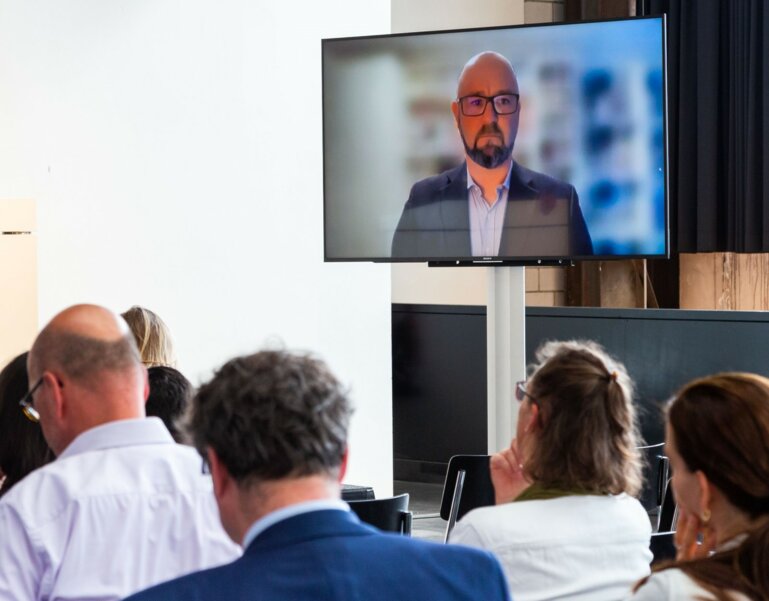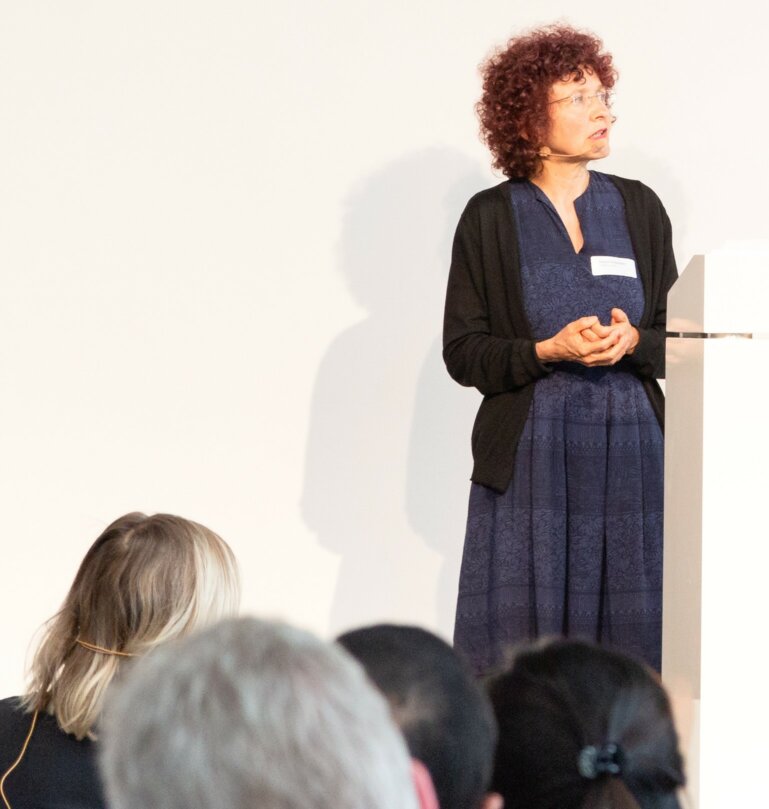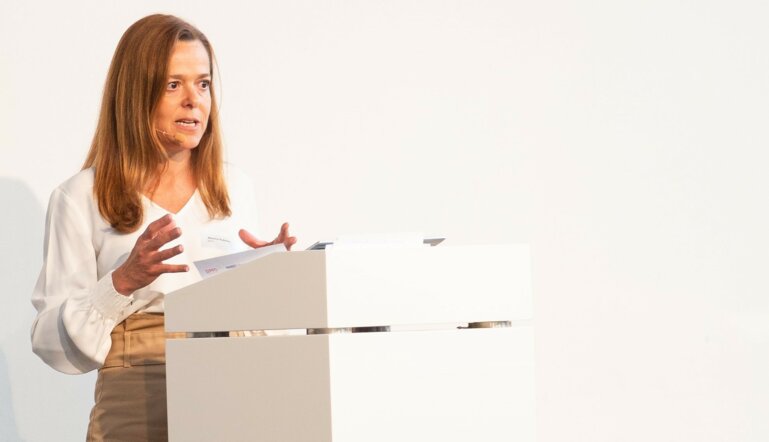New financing solutions for SMEs in sustainable supply chain management
The SIPPO Import Promotion Forum took place for the fifth time. Seven renowned speakers addressed the very topical issue of how SMEs can build socially and environmentally sustainable supply chains and find appropriate financing solutions.

Introduced by the facilitator Thomas Streiff of BHP - Brugger and Partner, Clément Graf, Head of Programme at SIPPO, and Kaspar Engeli, Director of Trade Switzerland, which co-organised the event, both pointed out the urgency of the topic.
While established forms of financing are available for financing sustainable supply chains, they are mostly not suitable for small SMEs. The Forum gave an insight into alternative financing solutions and looked at the options from different angles.
Peter M. Bachmann, President of the Board of Directors and owner of Pro Fair Trade AG, opened the discussion. His company imports high-quality vegetable oils and fats from economically and structurally weak countries; some of the products are produced on his own plantations and can be digitally traced throughout the entire production process. His company supports various social projects and finances the introduction of sustainable production practices and their certification. However, he acknowledged that, among other things, support through crop insurance or financing of new plants to meet high certification standards could indeed help him, not least to be able to continue long-term programs for the further training of his workforce and basic education for their children.
Tanja Havermann, co-founder of Clarmondial, an investment advisory firm focused on mobilizing additional capital for projects that
protect the environment and preserve biodiversity, pointed to current challenges in global value chains. This is caused by short term issues such as high commodity prices and inflation, logistics and changes in customer behaviour and regulation. From her point of view, the welfare of local people including farmers and employees go hand-in-hand with environmental sustainability when it comes to sustainable production.
But to address the risks and opportunities that changes to global value chains pose, SMEs often need access to more and different types of financing. She spoke of grant funding for the introduction of technical solutions, commercial funding and also opportunities for combining different forms of finance (blended finance) in the form of funds with the participation of different types of investors including development agencies to attract additional private capital. She also referred to the role of larger companies, who can support their suppliers to access additional financing, often enabling more advantageous financing conditions that can support sustainable sourcing.
Directly from South Africa, Marianna Papadopoulos, Senior Specialist Capital Raising and Syndication, and Kgampi Jack Bapela, Head Agro-processing and Agriculture, both from the Industrial Development Corporation (IDC), as well as Will Coetsee, Co-founder and Managing Director of Botanica Natural Products, a social enterprise specialising in agro-processing of plant extracts and oils in rural South Africa, joined the panel via Zoom.
Will Coetsee explained how important it is to have open and transparent communication between SMEs and potential donors. When difficulties arise, both parties can discuss them on an equal footing. It is particularly important that expectations are managed. He received initial financial support from the Dutch government, which made receiving further financing easier later on.
Marianna Papadopoulos emphasized the importance of institutions to act as catalysts. For example, they may provide risk insurance, such as the Export Credit Insurance Corporation (ECIC), or act as “aggregators” that pool the needs of several SMEs and look for joint solutions. They may assume risks themselves or pass them on to other organisations. Kgampi Jack Bapela confirmed that organisations like the IDC often help to structure money flows and, in addition, offer advice on marketing or financing topics wherein producers have less experience.
Susanne Grossmann, Co-Head of the SECO Start-up Fund, which provides loans for start-ups in developing countries and emerging economies, emphasised the high success rate of 70% of the start-ups that received loans of between 70,000 and 500,000 Swiss francs, which they usually repay within 7 years. While the fund does not provide management support, the standards under which the loans are granted are reviewed every two years.
Monika Rubiolo, Head of Trade Promotion at SECO, summarised that in some cases financing challenges have become more acute after the pandemic. Therefore, SECO is keeping an eye on the investment climate for SMEs. The examples from South Africa showed clearly how subsidiary support for companies can have a very positive impact. SECO is committed to this mechanisms and is planning new initiatives to further strengthen the model of mixed financing through private and public funds. When supporting supply chains, SECO puts a strong emphasis on sustainability, either through the implementation of standards, or compliance, or other methods.
The full video of the event:



 Morocco
Morocco












